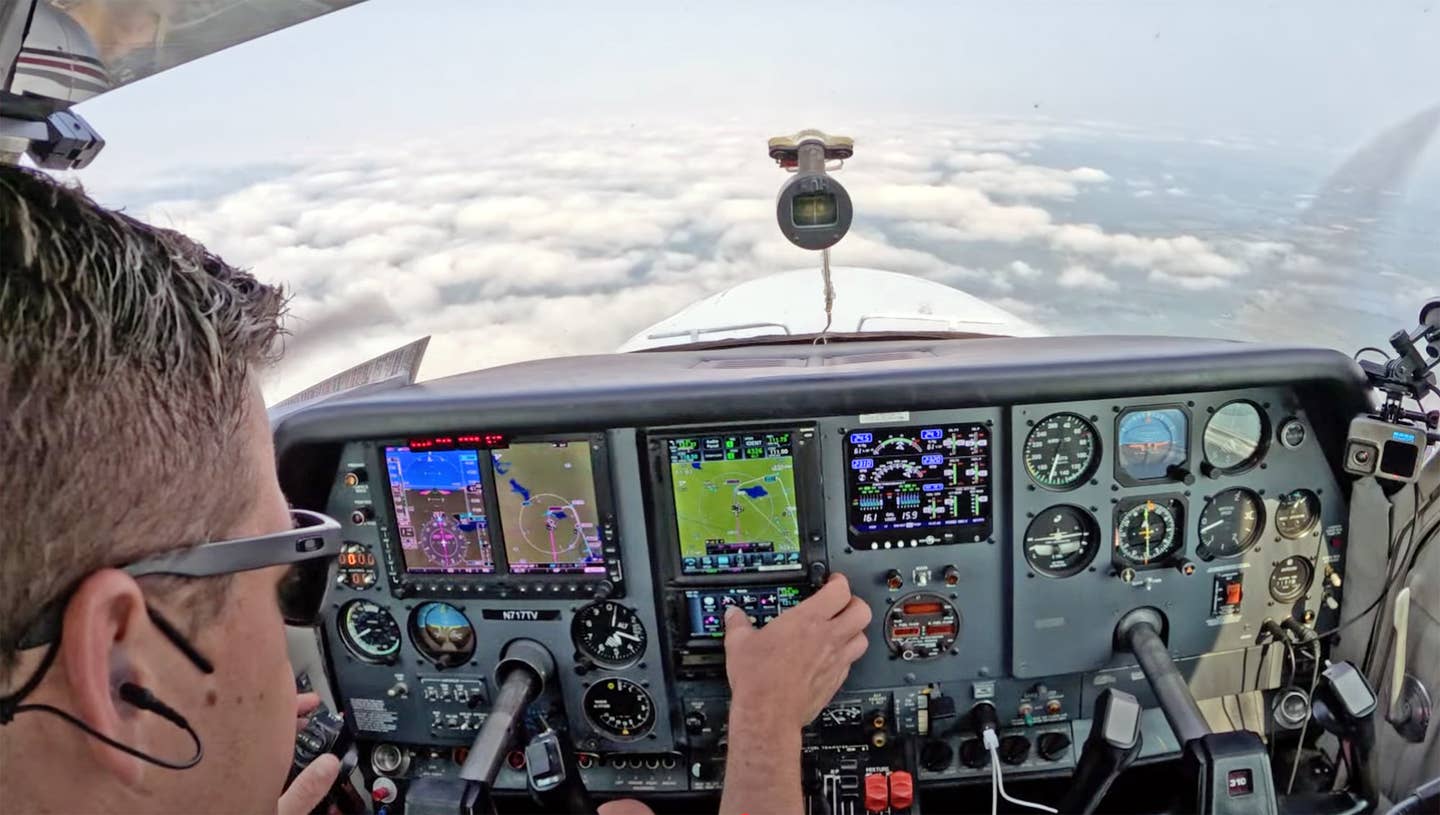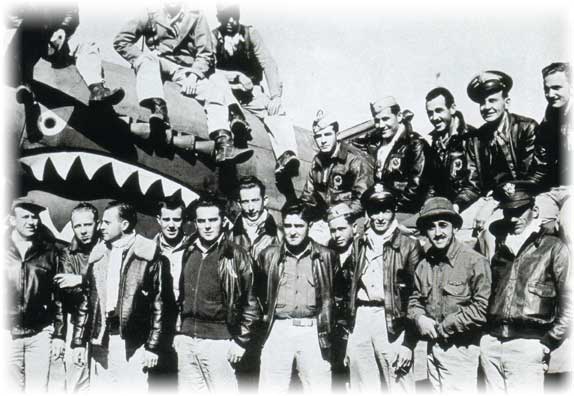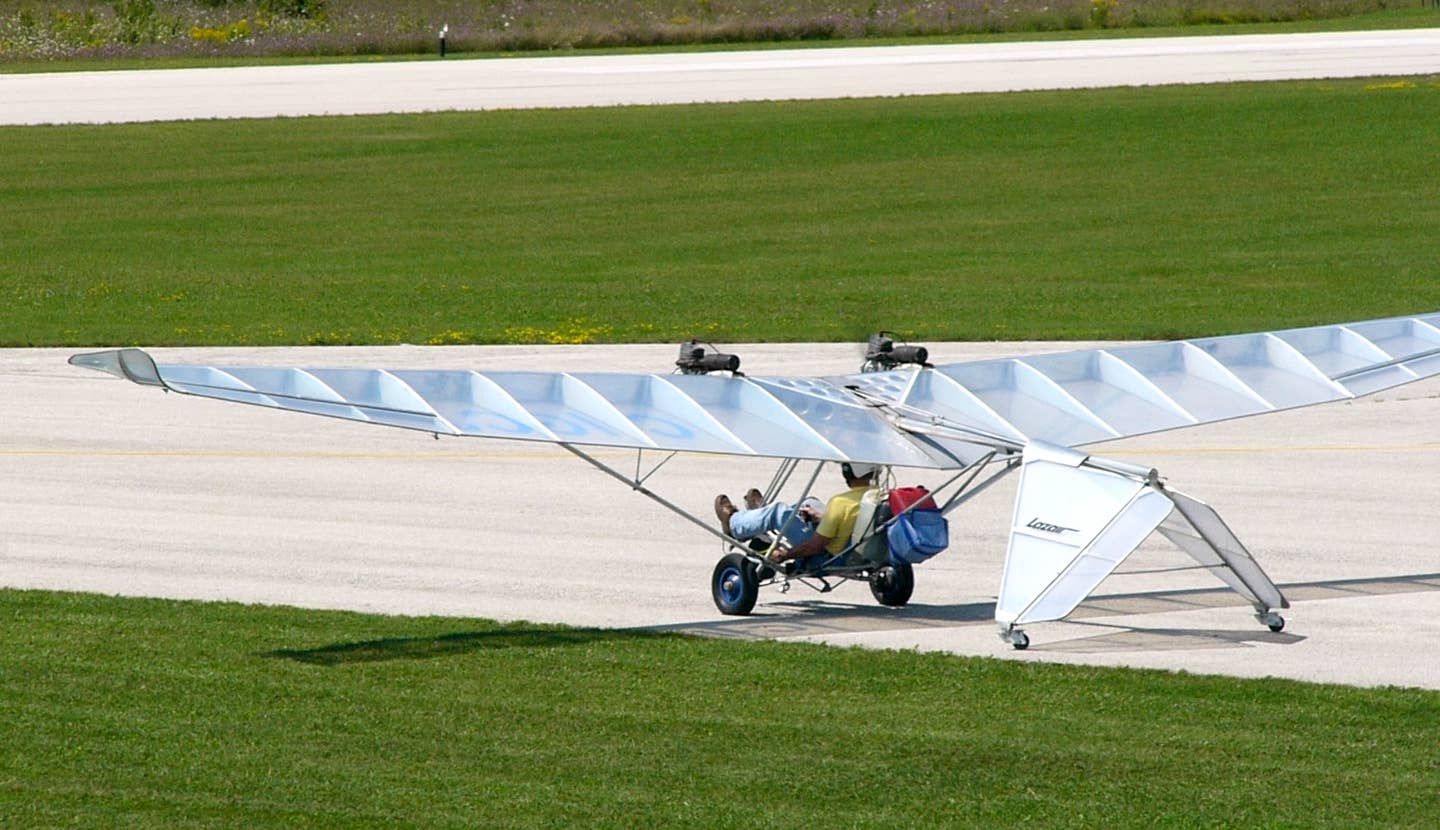Pelican’s Perch #23:Age Sixty – And That Moron Quesada
AVweb’s John Deakin takes a whimsical look at his recent compulsory retirement after 25 years in the left seat of a Boeing 747. But, his whimsy turns to anger as he looks at the origin of the unfair, arbitrary, and illogical rule that has clipped the wings of thousands of fine young 60-year-old airline pilots at the peak of their game. Deakin has reserved a special place in hell for the first FAA Administrator who enacted the mandatory retirement age, and offers a couple of suggestions that might help get rid of this insane rule. If you’re a Deakin fan (and who isn’t?), this is one of his best.
I Made It to Sixty!
 Well friends, the idiotic "Age Sixty" rule finally hit home in a verypersonal way a couple of weeks ago, when the calendar rolled around to my own 60th. I knewit was coming, and I'm really delighted to have survived to this point, but I guess I wasable to somehow make myself believe it would never happen to me, even in the last fewdays. Durned if it didn't sneak up on me at last! The big Six Oh. My, my. I still feellike I'm 18, and I know I haven't grown up yet, how can I be 60? That's OLD, and I don'tfeel old!
Well friends, the idiotic "Age Sixty" rule finally hit home in a verypersonal way a couple of weeks ago, when the calendar rolled around to my own 60th. I knewit was coming, and I'm really delighted to have survived to this point, but I guess I wasable to somehow make myself believe it would never happen to me, even in the last fewdays. Durned if it didn't sneak up on me at last! The big Six Oh. My, my. I still feellike I'm 18, and I know I haven't grown up yet, how can I be 60? That's OLD, and I don'tfeel old!
It's not as bad for me as it is for most airline pilots, because I don't work under FARrules, and the ICAO rule is just a little bit different. FAR 121.383(c) states that"no pilot" may serve on and after the 60th birthday, while the ICAO regulationsays "no captain." I have it on reliable authority that ICAO is consideringraising the limit for captains, and if they did that I might be able to move back into theleft seat, but I'm not holding my breath. It is not exactly a high-priority item for them.
(How IS "ICAO" pronounced, anyway? I've always said "eye-kay-oh,"but others say "eee-kah-oh," and I've heard other variations. The French puteverything else backwards, so they probably have their own spelling and pronunciation,too.)
Two Weeks Ago, I Couldn't Even Spell "Copilot" - and Now I AmOne!
Anyway, venturing into that better-than-nothing ICAO loophole, here I am, wearing threestripes and no scrambled eggs on my hat for the first time in my career.
 Well, that's not quite true. In the interests of keeping therecord straight, I flew a couple of months as a DC-3/C-47 copilot with Air America in1963, and my current employer busted me to 727 copilot for three months in about 1969 fora minor indiscretion we need not go into here. But those unfortunate times aside, andthrough cunning, judicious use of blackmail, bribery, and other skullduggery skillfullypracticed (without benefit of a union), I have now spent just over 42 years as a captain,working my way up the food chain by climbing into ever-larger airplanes. I have beenprivileged to spend the past 25 straight years on the 747, and may now have more time inthat magnificent airplane as captain than anyone else in the world. For a time, I was theyoungest, and for at least one day, I was the oldest! Ah, fleeting fame, and youth! No onebut me (and a few friends) noticed, which is as it should be.
Well, that's not quite true. In the interests of keeping therecord straight, I flew a couple of months as a DC-3/C-47 copilot with Air America in1963, and my current employer busted me to 727 copilot for three months in about 1969 fora minor indiscretion we need not go into here. But those unfortunate times aside, andthrough cunning, judicious use of blackmail, bribery, and other skullduggery skillfullypracticed (without benefit of a union), I have now spent just over 42 years as a captain,working my way up the food chain by climbing into ever-larger airplanes. I have beenprivileged to spend the past 25 straight years on the 747, and may now have more time inthat magnificent airplane as captain than anyone else in the world. For a time, I was theyoungest, and for at least one day, I was the oldest! Ah, fleeting fame, and youth! No onebut me (and a few friends) noticed, which is as it should be.
I've now done two copilot trips. Other than the pay cut, it's not bad at all. I amstill based in LAX, with a very small group of westerners, all of whom I know and like,and with whom I've flown many times. Still on the same route between LAX and Sao Paulo,Brazil, although that may change.
To my delight, I no longer have to make those awesome, earth-shaking decisions forwhich those captains are paid big bucks. Like when to turn the seat belt sign on. Or evenmore difficult, to remember that it's on, and to turn it off. I used to just hate that.Others now decide who takes which rest period, and I'm free at last to shrug and say,"Doesn't matter to me." That's what I've always said, but since everyone elseusually said the same thing, the final decision usually came back to me as captain. Ofcourse, in the end, to avoid taking a delay while discussing this all-important matter,I'd make the call, then the bitching would begin, "Gee, I hate the first restperiod." Another might whine "If I'm going to make the landing, shouldn't I havethe middle rest?"
"Okay, OKAY! What DO you want, then?"
"Oh, I don't care, anything you say."
It's no wonder my hair is starting to turn gray, and I'm so cranky in my old age.
Those Awful Captains
You might think that captain on my first copilot trip was trying to be nice by askingme, a lowly copilot, which rest period I wanted, but all he was really trying to do wasevade having to make the decision himself. I took great pleasure in telling him (politely,of course) "Oh, no, YOU'RE the captain, I'm the copilot, I'll take any rest periodyou want me to." I'm not about to let him dump THAT decision on me, now! I've got myrights.
Airline pilots would rather bitch than do anything else, except maybe scarf up a freeUSA Today or a free meal. I tell ya, now that I'm a copilot, I realize just how terriblethose awful captains are. They always go the wrong way around a buildup, too ... I nevernoticed that before. I'd sure never do it that way, if I were the captain. Overpaid bunchajerks, if'n you ask me.
I've done mostly the very long-haul flights for many years, where we often had acomplete double crew (two captains, two copilots, two FEs) or two captains, one copilot,and two FEs. We chronically ran short of copilots, so often it would be all captains andtwo FEs. If you find that confusing, just think how bad it was for us.
By custom, the FEs usually do the trips half-and-half, with the off-duty FE sleeping inthe upper bunk in the rear of the cockpit, and the other FE sleeping in the seat. Captainsare on duty half the trip with double crews, or two-thirds the trip with "heavy"crews. (No, "heavy" doesn't mean weight, smarty ... it means"supplemented" as in an extra pilot.) Copilots customarily take the lower bunkbelow the FE (a problem with bed-wetter FEs). Captains have a very nice"stateroom," sometimes just behind the cockpit on the upper deck, sometimes atthe rear end of the upper deck on the SUD (Stretched Upper Deck) models, the 747-300s. Allbunks are made up doubled, so all we have to do is strip the upper layers off, and a cleanset of sheets and blankets appear for the next occupant. Fortunately, most captains havebeen better housebroken than FEs, so this isn't a problem more than once a month.
After all these years of sleeping in "The Captain's Stateroom" when off-duty,I realized this would have to change, and on my first trip I very quietly and meeklycrawled into the lower bunk in the cockpit for my rest period as any good copilot should.When it came time to wake me up, no one thought to look for Deakin in the lower bunk inthe cockpit, and they went nuts looking all over the airplane for me. First place theylooked after "The Captain's Stateroom" was in the Flight Attendant restfacility, for some reason I don't understand. Finally, disturbed by all the ruckus, Ipoked my head out about an hour late, and sleepily asked "What's going on?" Theycouldn't say anything, since I was really right where I was supposed to be, but maybethat's why the only crew meal left was fish heads and rice. Boy, do those rotten captainsget testy over the smallest thing!
I, of course, quickly took my duty seat, ate my crew meal, and went back to sleep, ashas been my habit for years. I'm sure those dreadful captains would have objected, but ofcourse, they were sleeping, too. In the future, I may just eschew the bunk entirely, andstay in the seat, as it's always a hassle to get in and out. That way, the captains cansplit the duty in half, like the FEs, and I can sleep in peace for longer stretches. Lesswhining from the left seat, that way, probably.
(No doubt you've all heard the joke "What's the difference between a jet engineand a captain? The jet engine quits whining at the gate!" I have a new appreciationfor captain jokes, now!)
The Little Things
As a "new" copilot, it's the little things that catch me. It is my job to dosome calculations and notations on the paperwork in operations, and I have to stop myself fromsigning the flight plan, now the duty of that other guy, the PIC. I haven't slipped yet,but I've come close.
We have two nameplates each, and they are supposed to be installed near the two forwardleft doors so the passengers can see who's flying. More experienced air travelers havebeen known to turn back at the door, run screaming back into the terminal, and try for thenext flight when they see certain names, but that's another story. After years of slidingmy nameplate into the top slot, it's a real effort to remember "No, dummy, it's oneslot down, now." Somehow, it just doesn't look right.
Customs and Immigration forms in different countries have blanks for"Position," or "rank." I'll fill one out absent-mindedly, and getabout half done with "C-a-p..." and realize, "Ooops, nope, that'ssupposed to be 'copilot.'" And somehow, "copilot" seems properwith lower case, while I've always felt "Captain" should be capitalized (myeditor notwithstanding). I'll have to work on that.
It's hard not to snap to and pay attention when someone calls out "Say,Captain?" No, that call isn't for me anymore. Little Vikki in Operations, alwaysbright-eyed, happy and cheerful, called me "captain" the other day, and Igrinned and said, "That's your first mistake." She looked a little baffled,until she noticed I was wearing three stripes, and realized what I meant. She lookedshocked, then embarrassed, and wailed, "But, what do I call you now?"Well," I said, "why don't you just use 'John,' like I've asked you to evenwhen I had four stripes?" We all got a laugh out of that. She'll come around, oneday.
On the other hand, there have been some touching moments. I called in an arrival reportat LAX the other day, and Frank, a nice young fellow in Operations, recognizing my voice,said "Copied okay, Cap'n Deakin." I growled (but with a chuckle in my voice)"That's copilot Deakin now." He shot right back "You'll always be a captainto me." Several people have said that to me now, and seem very sincere. I don't knowwhy, but it makes my eyes feel kinda funny, for some reason.
I'm Mad as Hell, and ...
How did all this come to be? It was all the work of one man, Elwood "Pete"Quesada, the very first Administrator for the then-new FAA. I hope this moron has aspecial hot place reserved for him, because he made an unfair, arbitrary, and illogicalrule that has now clipped the wings of thousands of fine young 60-year-olds.
In the mid-50s (I remember them well), the U.S. aviation system seemed to be introuble. There had been a series of major crashes, including the famed "Grand CanyonMidair" in which two fully-loaded airliners came together with great loss of life.This was the turning point that gave us all the radar control we have today, and which isnow approaching the breaking point. I think we took a wrong turn there too, but that'salso another story.
Congress, ever ready to "do something, even if it's wrong" to solve aperceived crisis, created the FAA in 1956, taking away all the authority previously sharedby the Civil Aeronautics Authority (CAA) and the Civil Aeronautics Board (CAB). It wasfelt that by centralizing power in one agency, "Things Would Get Done."
Boy, did they ever. Most of them badly.
Congress (with some wisdom) expressly forbade military officers from holding theposition of Administrator of the new agency. From dim memory, I seem to recall thatmilitary men had run one or both the CAA and CAB, with less than successful results. Themilitary was somewhat out of favor at the time, and it was politically correct to not"mix" the military into civilian operations.
As is so often the case, that was turned right on its head, and the very firstAdministrator was Quesada, a USAF General! As I recall, most of the first half-dozenadministrators where also military people, in direct contravention of the original intent.So much for principle.
(And no, folks, I'm not anti-military, I think it's shameful what we've done to ours.)
There was such a crisis of leadership in aviation at the time that Congress waspersuaded that not only was a single, all-powerful agency needed, but it needed a"strongman" to run it. The term used at the time was "Czar," a termwhich always gives me the willies, as it means much heavier government power, which isalways a bad idea.
General Quesada was chosen, and after a brief controversy over the flaunting of the"no military" clause, was appointed. He swiftly took a number of very strongactions, some of which were controversial. But he was appointed as a "Czar,"with a mandate to take strong action, so he had his way.
One of his early actions was the Age Sixty Rule. There are persistent rumors thatQuesada acted in collusion with C. R. Smith, then the absolute ruler (another"Czar") of American Airlines (I think he was the founder?), probably the largestU.S. carrier at the time. It was well known that American had a cadre of very seniorcaptains who were at odds with old C. R. He wanted them out, and the sooner, the better.It was also very much to the economic advantage of the airline to get rid of the seniormen (all men, then), and replace them with younger men. Another rumor is that Quesada andC. R. were related in some family way ("brother-in-law," for one).
Quesada first handpicked his medical team, in order to get the results he wanted, andbegan an "official study" in the fall of 1958. In June of 1959, he proposed theAge Sixty Rule, allowing a brief period for comment. The FAA reported only about 100comments received, with the majority being "in favor."
I find this hard to believe, and I suspect a lot of comments against the rule weresimply thrown away if they didn't support it. Sadly, pilots don't write letters much, theyare not "paper oriented." Additionally, many pilots then and now take thenarrow-minded viewpoint that getting rid of the older pilots will create greateropportunities for upgrades, not thinking that they too will one day reach 60. The vastmajority of pilots rarely see the greater principles in any issues, they simply react towhat directly affects them, right now.
Another theory favored by those who like the rule is that by getting rid of the oldpilots, younger pilots will upgrade sooner, and make more money in the long run, even ifthey themselves are forced out at 60. Many took the attitude that the rule would beoverturned by the time they grew up, so they'd have the best of both sides of the issue,an early upgrade, then would be able to go beyond 60 when their turn came. I have takengreat pleasure in reminding a few of these folks, when their time did come, and they fellby the rule. For the record, I've always felt it was a bad, bad rule. I've spoken loudlyagainst it, but if my wife won't listen to me, what hope have I with the FAA?
Initially, ALPA (Air Line Pilots Association) took issue, and filed a number oflawsuits against the Age Sixty Rule, but all were defeated. Over time, as the youngermembers of ALPA became the majority and took over the power, ALPA reversed itself, and nowfavors keeping the rule. Again, so much for principle.
On December 1, 1959, the rule was published, and took effect on March 15, 1960. Quesadaruled that no hearings were to be held, and none were. Again, as "Czar," he had(and used) sweeping powers to get his way, and ever since, those pilots who turn 60 areout of luck.
The FAA mentioned early on that they were open to applications for exemptions inindividual case, but to date, not one has ever been issued. You will forgive me, I hope,for thinking the FAA used that promise as a sop to reduce opposition, with zero intentionof every carrying through.
There had been no crashes due to old folks in the cockpit, no"trouble" of any kind. It is astonishing to me, because all the cockpitsaffected by the Age Sixty Rule (Part 121 carriers only) had additional crewmembers as abackup! There have been a number of in-flight deaths in the cockpit over the years (allunder age 60, many much younger), and in every case, the other pilot has successfullylanded the airplane without incident, as trained, and as expected. No big deal. In fact,there's even a standard procedure for it, the copilot calls up the cabin crew to help, andissues his first order as PIC, "Drag that dead ******* out of my seat!"
The FAA, prompted by the adverse reaction, set up a "study" in the earlysixties, but abandoned it before the final results were made public. In 1969, an outsidereport was commissioned and completed, but no results were ever made public.
Gee, guess why? Do you think it's just possible the results might not have been whatthe FAA wanted, and they simply suppressed that which they did not like? No, no, of COURSEnot. They'd never do a thing like that. Would they?
In 1979, the FAA reviewed a Navy study on the long-term health histories of 1,000aviators but concluded that the study failed to provide an adequate basis for revising theAge Sixty Rule. In other words, the FAA doesn't need, nor are they interested in nofeelthy, steenking real data, unless it supports their nutty position.
In 1979, Congress finally got interested, and directed (by legislation) theNational Institutes of Health to do some research on retaining or ditching the rule. Apanel was convened outside the authority of the FAA, and "expressed doubts about theneed for all pilots to step aside at age sixty." They further suggested a study ofselected captains over sixty.
The FAA, ever willing to pile insanity upon insanity, issued two NPRMs after reviewingthe NIH report. First they suggested extending the Age Sixty Rule to flightengineers! The arrogance! Second, they proposed what the NIH had suggested, a test programfor selected pilots over sixty.
Two years later, after the furor had died down, the FAA quietly dropped both proposals.
Is this dirty pool, or what?
Essentially, the FAA's position is now: "Before we will consider changing therule, someone must prove to us that doing so will not degrade safety." It is, ofcourse, impossible to prove a negative, and even the FAA is smart enough to know that. Butthey somehow don't seem to need any such proof to pass ever more rules.
Today, the unions are run by the "young turks," who want early promotion,higher pay, and above all, early retirement, so they can go play golf full-time. (I hategolf.) Few seem to take any joy in the flying, and with the FAA looking down their throatsevery second, it's no wonder. Retirement plans are set up for retirement at 60, with theIRS having made several favorable rulings only for such retirees. Many modern pilots wouldprefer to retire even earlier.
Those of us in the hot seats have all seen pilots that have grow old, and are no longerfit to fly at 55, or 50, or even younger. We've also seen perfectly sharp pilots well over60 who are still going strong, still the equal of most in their thirties. The Age SixtyRule does no justice on either side of the issue. The overwhelming tendency with the"early incompetent" pilots are "Aw, let 'em go, they'll be sixty soon, andoutta here soon, anyway." No one wants to pull the plug, when there are only a fewyears to go. Another example of a government rule that doesn't work, and which may even becounterproductive.
Is There a Solution?
What CAN we do about aging pilots? We may never get "too old," but there's noquestion that as the years pass, some skills deteriorate, and eventually all of us reach apoint where we're not safe to command a 747 for one reason or another. We may all thinkwe're as good as we ever were, but in the quiet of the night, after a sloppy approach, Ithink most of us realize that maybe, just maybe, we're NOT as good as we like to think weare. How much of that comes from aging, and how much was there all along and now we'regetting old enough to recognize (or admit) it, I don't know.
Ideally, I'd like to see a totally objective "system" of some sort that iscapable of weeding out the old duffers (even those at age 30). Two methods have long beenin the back of my mind (or what passes for it at age 60).
First, what if the technology behind video games were used to set up "games"or some sort of test that measures reflexes, short-term memory, and motor skills? Startearly with pilots, and let them establish a baseline performance that is stored in thecomputer. Run a quick five-minute check every few months, ignoring the peaks and valleys,but when a long-term downturn occurs, take a much harder look at that pilot. Or evenground him.
Second, how about "double blind" check rides? This would be easy withsimulators, just put the checkee in the simulator, and the check pilot in another roomentirely, set up so both see the same instrument indications and control positions, withvoices artificially altered. No checkee knows who the checker is, and no checker knows whothe checkee is, or how old he is. If the checkee turns in an adequate performance let himgo on in peace, regardless of his age.
These may not be perfect. There may be other ways of assessing individualperformance. But they beat the hell out of the present arbitrary Age Sixty Rule.
Be careful up there!






